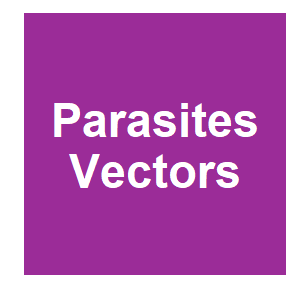
Keywords: plasmodium-falciparum

|
The need for new vector control approaches targeting outdoor biting anopheline malaria vector communitiesS. Sougoufara, E. C. Ottih and F. Tripet, Parasites & Vectors, 13:15. 2020.
Since the implementation of Roll Back Malaria, the widespread use of insecticide-treated nets (ITNs) and indoor residual spraying (IRS) is thought to have played a major part in the decrease in mortality and morbidity achieved in malaria-endemic regions. In the past decade, ... Keywords: acid sugar baits, Anopheles, gene drive synthetic, genetic biocontrol, insecticide resistance, Insecticide treated bed nets, malaria, Pesticide resistance, Plasmodium parasites, plasmodium-falciparum |

|
CRISPR in Parasitology: Not Exactly Cut and Dried!Bryant, JMB, S.; Glover, L.; Hutchinson, S.; Rachidi, N., Trends in Parasitology, 35:409-422. 2019.
CRISPR/Cas9 technology has been developing rapidly in the field of parasitology, allowing for the dissection of molecular processes with unprecedented efficiency. Optimization and implementation of a new technology like CRISPR, especially in nonmodel organisms, requires ... Keywords: acid sugar baits, Anopheles, gene drive synthetic, genetic biocontrol, insecticide resistance, Insecticide treated bed nets, malaria, Pesticide resistance, Plasmodium parasites, plasmodium-falciparum |

|
Current vector control challenges in the fight against malariaG. Benelli and J. C. Beier, Acta Tropica, 174:91-96. 2017.
The majority of National Malaria Control Programs in Africa still rely on indoor residual spraying (IRS) and long-lasting insecticidal nets (LLINs). These methods reduce malaria incidence but generally have little impact on malaria prevalence. In addition to outdoor transmission, ... Keywords: acid sugar baits, Anopheles, gene drive synthetic, genetic biocontrol, insecticide resistance, Insecticide treated bed nets, malaria, Pesticide resistance, Plasmodium parasites, plasmodium-falciparum |

Contact
David O’Brochta
Foundation for the
National Institutes of Health
geneconvenevi@fnih.org
RSS

